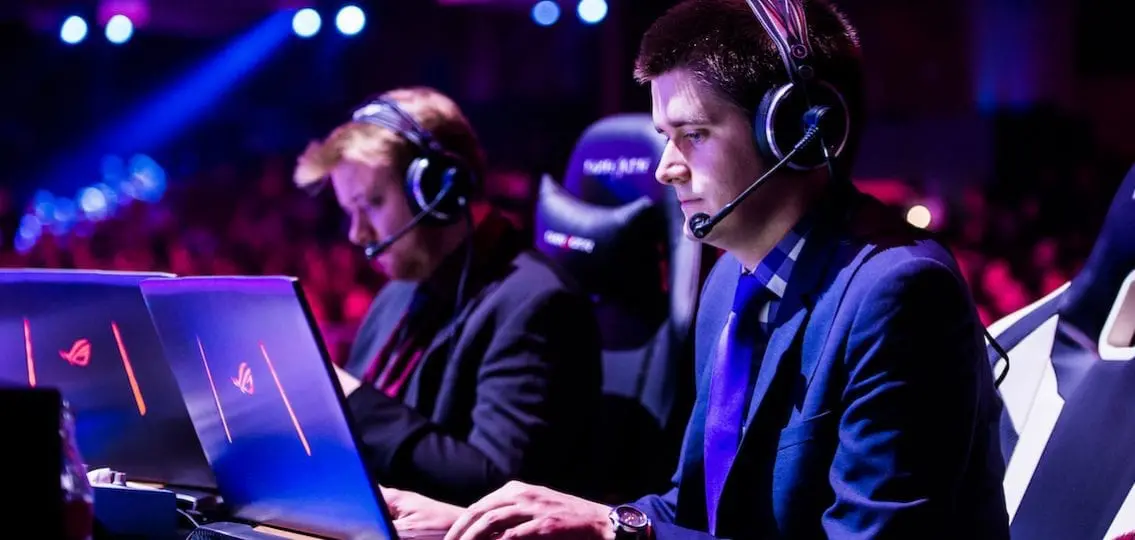I am excitedly glued to my son’s first live gaming competition. I have no idea who is who or what is what; all I can do is follow tracks of the mysterious other who pounds through war-torn streets-zigging, zagging, dodging shadows that I can only assume are the enemy.

On the screen are a bevy of statistics, numbers changing constantly as the commentator’s voice shouts in the background. Where is my son in all this madness? I have no idea. The only beacon to understanding is his team’s name at the top of the screen and a number count. I follow those numbers like a bookie in Vegas—frenzied and desperate, as if this virtual war were real.
This war isn’t real, but my son is fighting a different kind of war—a war for his dreams.
My Dreams for My Son
Until recently, I was a worse enemy than the dangers he faces in his online battles. I browbeat him for every B he brought home, reminding him that colleges are competitive and “above average” wouldn’t cut it in the real world. He had taken the most rigorous courses in school, and looking back, I wonder if I really offered him any choice. This is what you do to succeed, I told him. This is how it works, good grades, college. That is the dream I had worked toward since his birth.
When he was an infant, I played Mozart, hoping the complex musical composition would enhance his intelligence. I read books to him when he was a newborn and toddler. In elementary school, I prepared him over the summer for the upcoming grade, buying books and bribing him with stickers and ice cream to get him to do the worksheets. High school was more of the same.
I put so much work into this dream of my son’s success. Maybe part of my fervor was selfish. If he succeeded, that meant I had been a good parent, right?
I lectured him, reminding him true success requires passion, relentless work, a refusal to accept less than the very best from yourself. Then I tried scolding. “With just a little more work,” I told him, “think what you could do, think what your grade could be.”
My Son’s Dreams
My son was showing the traits of a winner, but I never noticed. Because his energy was focused on his dreams, not mine.
Every night he played hours of video games. What a waste of time, I thought, hearing the sounds of his game echo loudly. But what could I say? He was a student teachers loved, in the top 15 percent of his class. A young man whose idea of a good time was watching the latest gaming tournament, not prowling the streets with other teens. I could let him have this innocent diversion, right?
What I didn’t know then was that this was not a diversion, but a passion. While I was berating him for apathy, he was researching e-sports gaming in high schools, going to teachers and asking for sponsorships, filling out paperwork, getting administrative approvals, and founding his own high school gaming league in order to compete in video game tournaments for scholarship money with other high school teams in the nation.
When I found this out, I was dumbfounded. Hadn’t I told him success requires passion, relentless work, a refusal to accept less than the very best from yourself?
Once he founded a competitive esports club, he scheduled regular practices. Members who did not pull their load were chastened and reminded they could lose their spot on the team. He even ordered jerseys to advertise this endeavor.
He also asked me to order a book from a professional gamer so that he could learn how to make money with his passions. I had tried to give my son a love of reading, but it never quite “took.” Except in this instance.
My son was showing the traits I tried to promote, and still honoring my dreams by working hard at school. Okay, maybe I wanted his B in AP Environmental Science to be an A, but I decided I could live with those marks. Why? Because it was time to let go and let him fly. Toward his dreams, not mine.
I had tried to make my son follow the safe route I had. Too scared to put myself out there, I never truly believed I could achieve greatness in my passions. Twenty years later, I see the benefits and disadvantages of this philosophy. Slowly, through my son’s example, I am learning to pursue my own dreams. Saying no to youthful dreams brought me stability and happiness, but it was a happiness that pacified and placated rather than set my soul on fire.
I no longer wanted this safe kind of happiness for my son. I wanted fireworks and symphonies—the kind people only experience by living their dreams.
I’ll never say, “Forget college.” I tell him constantly that life is about keeping doors open, and education is one of those doors. I will continue to expect high standards academically and I’ll expect him to pursue his dreams while pursuing a college education after graduation. But now I honor his dreams by helping him find competitions to improve his skills. I urge him to go practice his gaming when he looks ready to settle in for a nap.

Maybe I’m crazy for promoting something so controversial, something others would call violent and worthless. But I will support my son’s dream and urge him to shoot for the stars. Maybe he will miss, but maybe he will go even further that he—or I—can imagine.



